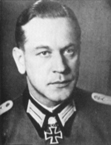Wirraway_Ace
Posts: 1400
Joined: 10/8/2007
From: Austin / Brisbane
Status: offline

|
quote:
ORIGINAL: Ike99
You charge, try and convict by Articles. In this case, Article 6. You can´t go through and strike words, sentences and paragraphs out of a law because you don´t like them.
A lot of war criminals at Nuremberg would have looooved to have been able to do that.
Article 6 is Article 6. You take it all or reject it all.
Ike, I appologize, but I am not sure what Article 6 you are referring to. Article 6 of the 1907 Hague IV conventions refers to POWs and their legal uses. the Geneva Conventions of 1928,29 are limited to the use of chemical weapons and Treatment of POWs.
Section II, Chapter I, Article 22 of the 1907 Hague says:
The right of belligerents to adopt means of injuring the enemy is not unlimited.
Art. 25.
The attack or bombardment, by whatever means, of towns, villages, dwellings, or buildings which are undefended is prohibited.
Art. 26.
The officer in command of an attacking force must, before commencing a bombardment, except in cases of assault, do all in his power to warn the authorities.
Art. 27.
In sieges and bombardments all necessary steps must be taken to spare, as far as possible, buildings dedicated to religion, art, science, or charitable purposes, historic monuments, hospitals, and places where the sick and wounded are collected, provided they are not being used at the time for military purposes.
It is the duty of the besieged to indicate the presence of such buildings or places by distinctive and visible signs, which shall be notified to the enemy beforehand.
I can't find anything else relevant. No surprise, in 1907 there was no discussion of rules of war in the air, but I would assume that the rules of war on land would apply if the land was being bombarded from the air.
By these measures, I don't see any way to charge the bombing campaign as illegal. It must be the 1949 conventions that clarified the air war piece.
|
 Printable Version
Printable Version














 Though, the quote referred to RAF Bomber Command, I tried to draw the parrallel to the U.S. experience. Bomber Command losses actually approached 50%--and that would make even the hardiest infantryman or combat engineer shudder.
Though, the quote referred to RAF Bomber Command, I tried to draw the parrallel to the U.S. experience. Bomber Command losses actually approached 50%--and that would make even the hardiest infantryman or combat engineer shudder. 
 New Messages
New Messages No New Messages
No New Messages Hot Topic w/ New Messages
Hot Topic w/ New Messages Hot Topic w/o New Messages
Hot Topic w/o New Messages Locked w/ New Messages
Locked w/ New Messages Locked w/o New Messages
Locked w/o New Messages Post New Thread
Post New Thread